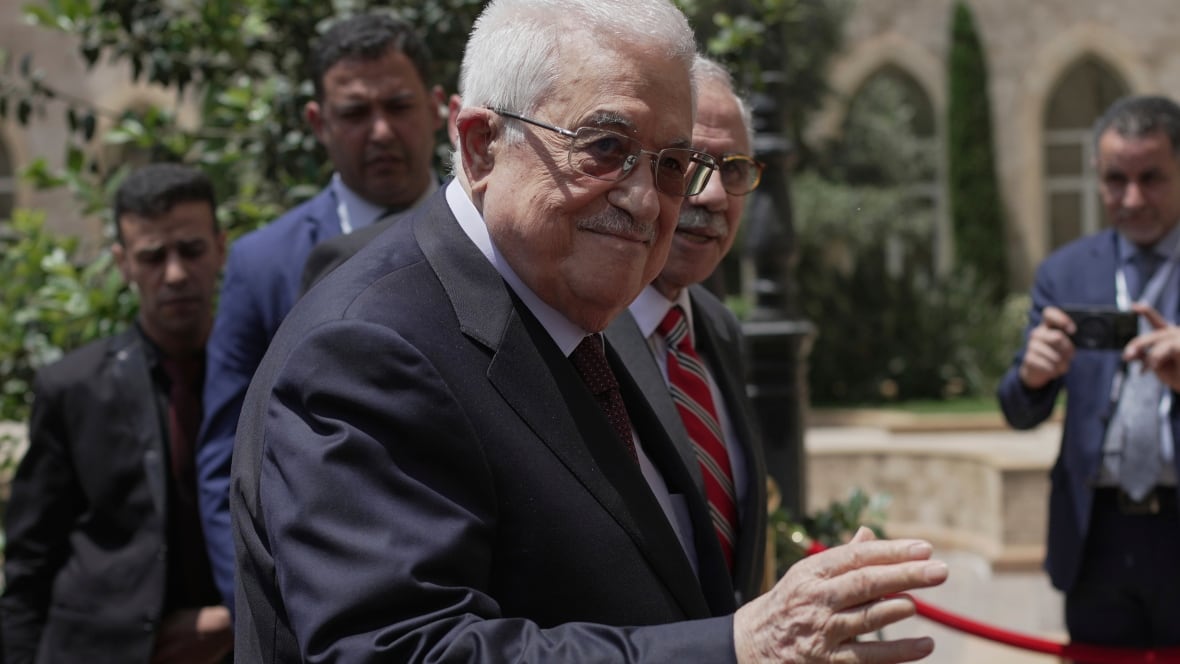World
U.S. Visa Denial for Abbas Sparks International Criticism Ahead of UN Assembly

The United States has denied a visa to Mahmoud Abbas, the President of the Palestinian Authority, preventing him from attending a gathering of world leaders at the United Nations in New York City. This decision has drawn sharp criticism from various international representatives and has prompted calls for reconsideration from Abbas’s office, claiming it contradicts international law and the UN Headquarters Agreement.
The UN General Assembly is scheduled to open on September 9, 2024, marking the second anniversary of the Hamas attack on October 7, 2023, which initiated the ongoing conflict in Gaza. In light of this, representatives from Canada and several other nations have expressed their readiness to recognize Palestinian statehood during the assembly. Canadian Prime Minister Mark Carney has indicated that Canada will align with countries such as the United Kingdom and France in this recognition, marking a significant shift in Canada’s long-standing foreign policy approach toward the Israeli-Palestinian conflict.
A U.S. State Department official confirmed that Abbas, along with approximately 80 other Palestinians, would be affected by the visa denial linked to members of the Palestine Liberation Organization (PLO) and the Palestinian Authority (PA). The PA plays a crucial role in governing Palestinian territories and addressing key issues such as security, health, and education. While the Palestinians hold observer status at the UN, similar to that of the Holy See, the U.S. asserts its right to deny visas based on security and foreign policy considerations.
In response to the U.S. decision, Nabil Abu Rudeineh, a spokesperson for Abbas, urged the U.S. administration to reverse its stance. He emphasized that the decision undermines the principles of international law, specifically the UN Headquarters Agreement, which prohibits restricting access to any delegation.
Several European foreign ministers voiced their disapproval of the U.S. decision during a meeting in Copenhagen. French Foreign Affairs Minister Jean-Noël Barrot stated that a UN General Assembly “cannot be subject to any restrictions on access.” Irish Foreign Affairs Minister Simon Harris called for a strong EU protest against the U.S. action, while Spanish Prime Minister Pedro Sánchez labeled the visa denial as “unjust,” asserting that Palestine has the right to have its voice heard at the UN and other international forums.
The U.S. State Department defended its decision by reiterating accusations that the Palestinian Authority and PLO have not adequately condemned extremism and have pursued “unilateral recognition” of a Palestinian state. Palestinian officials reject these claims, pointing out that decades of U.S.-mediated negotiations have failed to resolve the Israeli occupation or secure a viable Palestinian state. The State Department underscored its position, stating, “It is in our national security interests to hold the PLO and PA accountable for not complying with their commitments.”
In a historical context, this is not the first time the U.S. has denied a visa to a Palestinian leader. In 1988, then-leader Yasser Arafat was also refused entry, prompting the UN General Assembly to convene in Geneva to accommodate his participation. Currently, the UN has indicated it will discuss the visa issue with the U.S. State Department, aiming to address the implications of this decision on international diplomacy.
As the UN General Assembly approaches, the situation continues to evolve. With at least 147 of the 193 United Nations member states recognizing a Palestinian state, the international community remains attentive to the developments and their potential impact on peace negotiations between Israelis and Palestinians. The U.S. maintains that any establishment of a Palestinian state must come through direct negotiations rather than unilateral actions.
-

 Science3 months ago
Science3 months agoToyoake City Proposes Daily Two-Hour Smartphone Use Limit
-

 Top Stories3 months ago
Top Stories3 months agoPedestrian Fatally Injured in Esquimalt Collision on August 14
-

 Health3 months ago
Health3 months agoB.C. Review Reveals Urgent Need for Rare-Disease Drug Reforms
-

 Technology3 months ago
Technology3 months agoDark Adventure Game “Bye Sweet Carole” Set for October Release
-

 World3 months ago
World3 months agoJimmy Lai’s Defense Challenges Charges Under National Security Law
-

 Lifestyle3 months ago
Lifestyle3 months agoVictoria’s Pop-Up Shop Shines Light on B.C.’s Wolf Cull
-

 Technology3 months ago
Technology3 months agoKonami Revives Iconic Metal Gear Solid Delta Ahead of Release
-

 Technology3 months ago
Technology3 months agoApple Expands Self-Service Repair Program to Canada
-

 Technology3 months ago
Technology3 months agoSnapmaker U1 Color 3D Printer Redefines Speed and Sustainability
-

 Technology3 months ago
Technology3 months agoAION Folding Knife: Redefining EDC Design with Premium Materials
-

 Business3 months ago
Business3 months agoGordon Murray Automotive Unveils S1 LM and Le Mans GTR at Monterey
-

 Technology3 months ago
Technology3 months agoSolve Today’s Wordle Challenge: Hints and Answer for August 19









